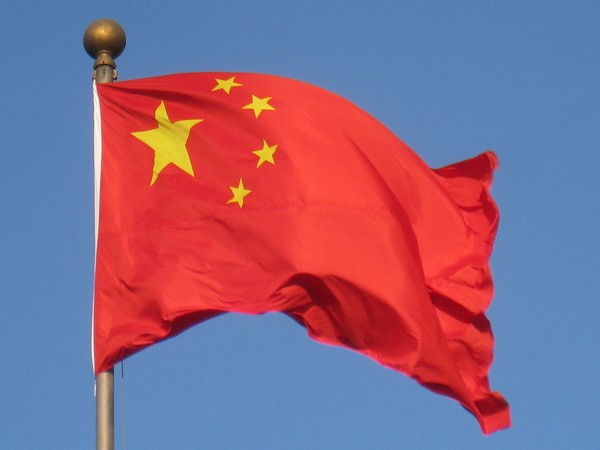As the economic deceleration continues unabated in China, it has cast a pall over the landscape of the Chinese fashion industry.
Prior to 2019, the Chinese economy was charting a positive course. However, the stringent lockdown measures implemented by the Communist Party of China in response to the Covid-19 pandemic have wreaked havoc across all sectors of the Chinese economy.
The sectors that have borne the brunt of this impact include real estate, exports, automobiles, electronics, and production.
The latest economic reports from China indicate that the fashion sector has been particularly hard hit. The long-term forecast for the industry remains nebulous, adding to the prevailing uncertainty.
Once, China was the world’s largest luxury market, accounting for half of global sales.
The Chinese consumers, once known for their extravagant spending, have now become more judicious and cautious with their expenditures.
The Chinese market was so crucial to the global fashion industry that extravagant parties were organized in the busiest markets and locations in Shanghai to woo customers.
At these events, the rich and influential Chinese would often pose by Louis Vuitton signs.
In the wake of China’s stumbling recovery from the pandemic, consumer spending has decreased sharply, causing unease in the market.
Prior to the Covid-19 outbreak, affluent Chinese tourists frequently visited Europe for shopping opportunities.
However, stringent travel restrictions imposed during the pandemic have halted their overseas shopping sprees.
The implemented restrictions have plunged the world’s second-largest economy into a deceleration from where it is finding difficult to bounce back.
This has resulted in loss of consumer trust and a noticeable change in the mindset towards luxury buying.
As China gradually recovers from the fog of the coronavirus pandemic, luxury brands are making concerted efforts to re-attract its consumers.
However, the current economic landscape paints a different picture. The once affluent Chinese consumer is now grappling with financial constraints.
The pandemic has led to widespread job losses, and due to dearth of customers, many businesses have been forced to shut their doors.
But all went waste, as there are no customers for such a luxury brand in China. These luxury brands have made significant investments but didn’t received warmth of the customers.
The once bustling metropolises now bear witness to deserted shopping malls and shuttered roadside shops.
The Chinese consumers, once known for their extravagant spending, have now become more judicious and cautious with their expenditures.
In April, Kering, the parent company of Gucci, experienced a significant drop in its stock value.
This was the result of an 11% decrease in their first-quarter sales, which they attributed to challenging market conditions in China.
“Gucci isn’t the only one feeling the heat. Other brands are also experiencing the impact of China’s domestic spending,” stated Flur Roberts, the luxury head at Euromonitor International, in a more straightforward yet impactful manner.
Brands that have established a significant footprint in China, such as Louis Vuitton, are orchestrating exclusive events and offering benefits to their VICs, which stands for Very Important Clients.
Louis Vuitton characterized its recent Voyager show in Shanghai as the “subsequent phase in a robust, enduring bond” with China.
Overall, the pace of the market has taken a hit. Bain & Company, a consultancy firm, predicts that the Chinese luxury market will only see a single-digit growth this year, a dip from last year’s 12 percent.
The show’s standout items — vibrant dresses adorned with oversized, cartoonish animals – were the result of a partnership with modern Chinese artist Sun Yitian.
The brand praised the “immense stylistic energy” of China’s younger generation.
But all went waste, as there are no customers for such a luxury brand in China. These luxury brands have made significant investments but didn’t received warmth of the customers.
Despite Louis Vuitton’s efforts to promote their products by involving Hollywood celebrities like Cate Blanchett and Jennifer Connelly, the strategy didn’t yield the expected results.
Western fashion brands, fully cognizant of China’s economic situation, continue to court their largest market in the hope of tapping into a pool of potential customers. However, these brands seem to be missing the actual state of affairs.
LVMH, the parent company of Louis Vuitton, is demonstrating considerable resilience amidst China’s economic challenges.
Despite reporting its slowest growth rate in years during the first quarter, the company noted a roughly 10 percent increase in sales to Chinese customers, both domestically and abroad.
Meanwhile, Prada and Hermes exceeded analysts’ predictions in their first quarter results, with sales surges of 18 and 17 percent, respectively.
A portion of that expenditure shifted to China as international brands pivoted to cater more specifically to their largest market through tailored products and events.
Overall, the pace of the market has taken a hit. Bain & Company, a consultancy firm, predicts that the Chinese luxury market will only see a single-digit growth this year, a dip from last year’s 12 percent.
Lisa Nan, a journalist for Jing Daily, pointed out that ‘the economic slowdown is shaking the confidence of Chinese luxury buyers’.
She added that ‘consumers are now more cautious and value-oriented, even going as far as to check the second hand market value of handbags before buying’.
In the aftermath of the pandemic, consumer preferences and priorities have undergone a significant change.
The economic downturn in China has had a negative impact on its residents, prompting many to adopt a more frugal lifestyle.
The erstwhile trend of chasing after big brands seems to be waning, with people exercising more caution in their spending habits.
The pandemic led to a significant drop in the number of Chinese tourists who usually spend heavily, making a severe blow to Europe’s luxury goods industry.
A portion of that expenditure shifted to China as international brands pivoted to cater more specifically to their largest market through tailored products and events.
According to Roberts from Euromonitor International, the future of the luxury market looks tough.
The Chinese market is currently in a fragile state, and experts predict that it may not see any signs of recovery in the near future.
Despite the substantial investments made by European brands in China, they are unlikely to yield any positive outcomes.









Comment